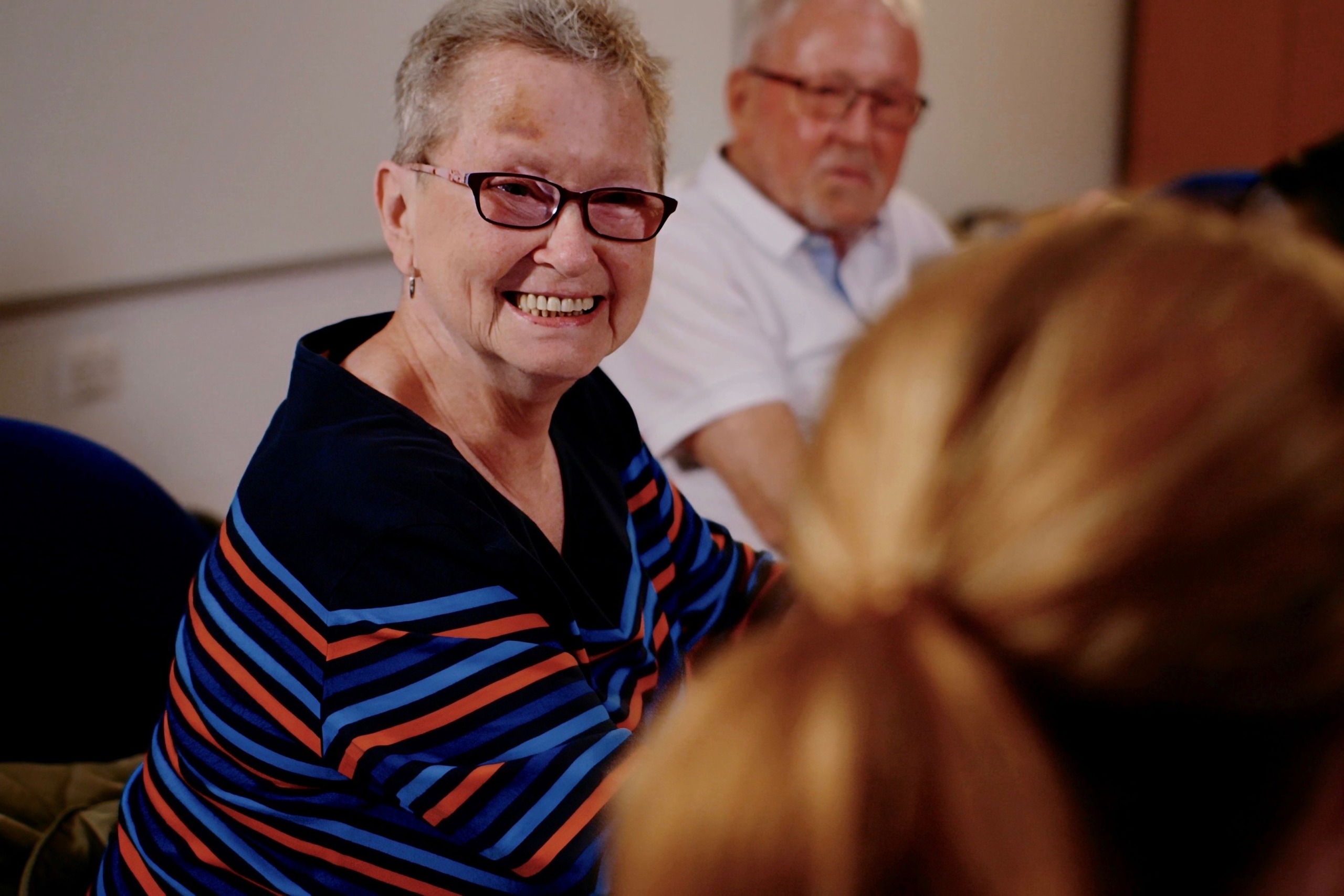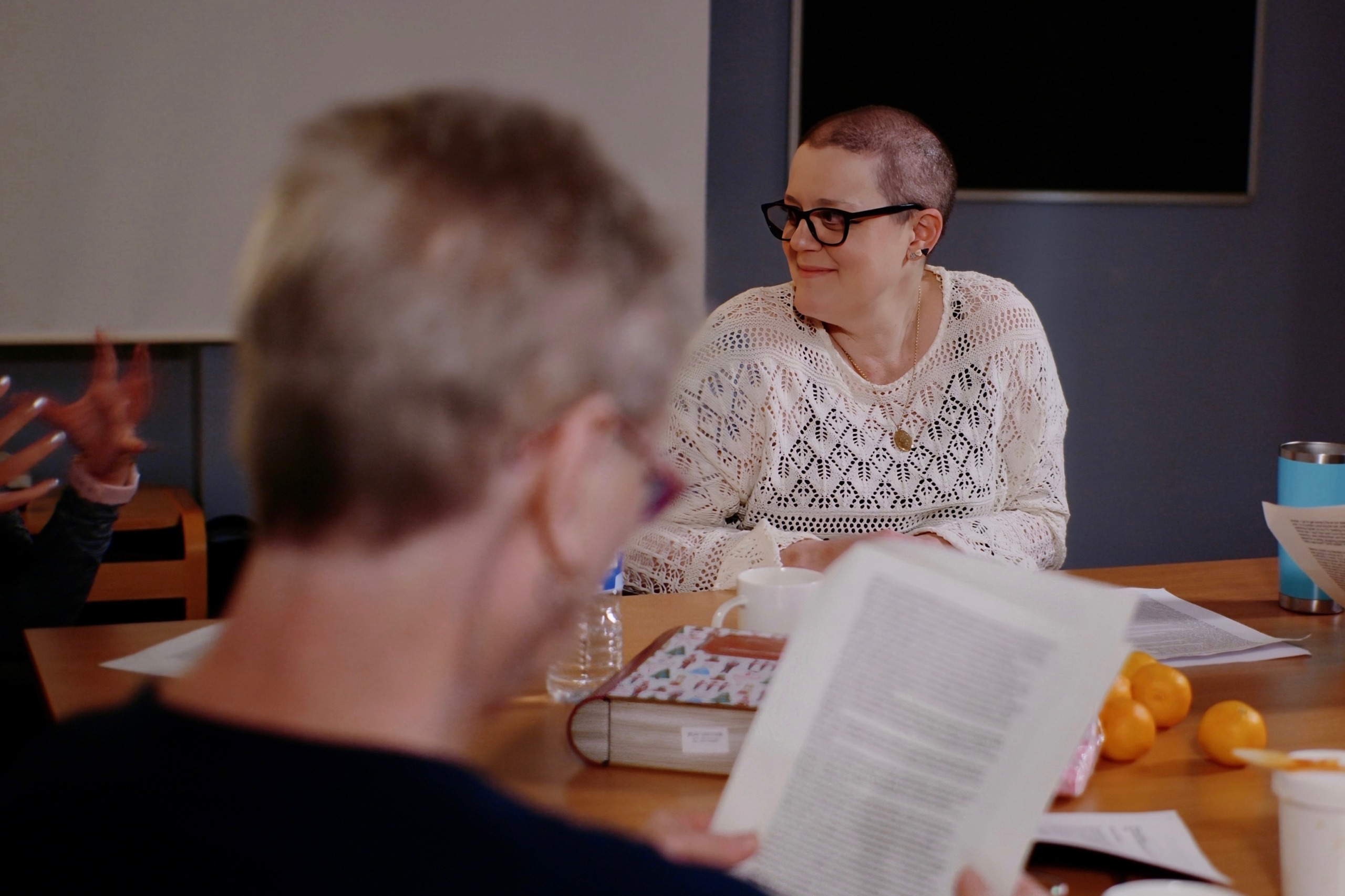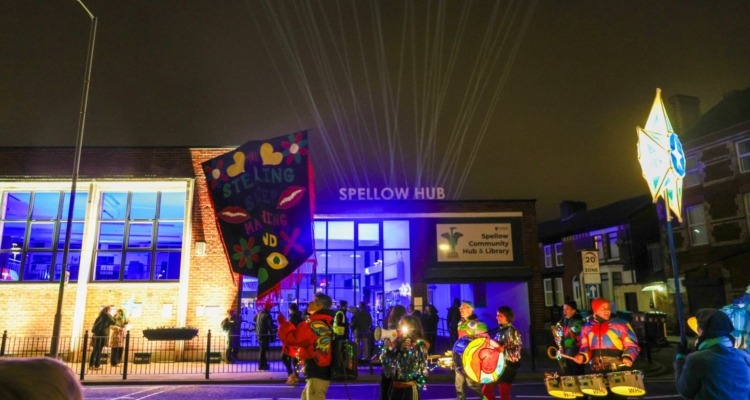UK’s only clinical Shared Reading group for patients with chronic pain ‘gives huge boost to wellbeing and enjoyment of life’, says Liverpool pain consultant
- In August BBC broadcaster Kirsty Young opened up on Radio 4’s Today programme about her struggle with chronic pain and how she felt dismissed by NHS; while this month comedian Miranda Hart has shared her experiences of chronic fatigue syndrome.
- For more than a decade, pain consultants at Broadgreen Hospital in Liverpool have offered a ground-breaking group, led by national charity The Reader, where patients living with chronic pain read literature aloud together - with hugely beneficial results.
- One of its founders Dr Andrew Jones and Reader Leader Abi Blackburn, from The Reader, talk about its impact.

Former BBC 4 Desert Island Discs presenter Kirsty Young has revealed how she had stepped away from her radio job in 2018 to undergo treatment for chronic pain.
She described her struggle with the condition fibryomyalgia and rheumatoid arthritis as "a little private horror” and very isolating"; and this month comedian and Call the Midwife actor Miranda Hart has shared her own personal experience of chronic illness in a new autobiography, I Haven’t Been Entirely Honest with You.
At Liverpool’s Broadgreen Hospital a pioneering intervention has proved highly successful as a useful therapy for people with chronic pain for more than 10 years, alongside existing NHS therapies.
Since 2011 pain consultants at the clinic have been running a literature-based Shared Reading group developed by national charity The Reader, based in Calderstones Park.
‘Shared Reading changes lives for the better’
Consultant in Pain Medicine at Broadgreen Hospital, Dr Andrew Jones, who helped set up the group, said: “The Broadgreen Shared Reading group has been running for more than 10 years. I helped set it up as part of my role as Consultant in Pain Medicine. Consequently, I have seen first-hand the good it does for patients living with pain.
“Shared Reading does not reduce pain, but it gives a huge boost to wellbeing and enjoyment of life. All my patients who attend the group tell me frequently of the difference it makes to their lives.
“As well as the known benefits of group working, literature itself has an independent effect. Shared Reading changes lives for the better.”
Every Tuesday afternoon a small mixed group of men and women, who attend the pain clinic, come together for 90-minutes to read short stories, novels and poetry aloud together. They range from patients who have undergone cancer treatment to those with long-term chronic pain conditions and one patient is dealing with the long-term effects of a serious fall.
One of the most striking collective pieces of feedback from group members is that they say it feels like ‘family’, particularly as they can all empathise if someone is feeling unwell.
The Shared Reading group is regarded by medics as an important treatment to complement Cognitive Behavioural Therapy (CBT), as was reported in a 2016 study (A Comparative Study of Cognitive Behavioural Therapy and Shared Reading for Chronic Pain).
Conducted by researchers from the University of Liverpool, The Reader and Liverpool University Hospitals NHS Foundation Trust, which runs Broadgreen Hospital, the research published in the BMJ Journal for Medical Humanities compared Shared Reading (SR) to Cognitive Behavioural Therapy (CBT) as an intervention for chronic pain sufferers.

Patients underwent a five-week CBT course and in parallel attended a 22-week Shared Reading group for patients with chronic pain, which they continued after completing CBT.
Findings revealed:
- reading stories often uncovers “forgotten, buried or inarticulate pain (emotional and psychological) rather than known or formally diagnosed pain”.
- people with chronic pain, who attended the SR group reported an emotional ‘mood boost; and said they slept better. One group member said: “It can feel for a while maybe a few days, like an injection of enthusiasm”.
- Shared Reading group members preferred more “intellectually and emotionally demanding literary pieces”. According to the research this “produced closer concentration and absorbed attention, reducing awareness of pain – ‘as though the extra mental effort helped shift immersion to another level and blocked out the pain more successfully’.”
- it has a potentially therapeutic effect in helping everyone, not just a person who is ill.
Dr Jones, who was involved in the research and himself runs CBT sessions to help people cope, said in the report "When people are in CBT, they’re people with pain. When they’re in the reading group, they’re people with lives.”
What is Shared Reading?
Trained Reader Leader Abi Blackburn selects a range of stories and poems to read aloud together. The reading material ranges across genres and period from classics like the Brontes to Lucia Berlin’s short story collection A Manual For Cleaning Women and New Zealand writer Patricia Grace’s Potiki.
Regular pauses are taken to encourage group members to reflect on what is being read, on the thoughts or memories the book or poem has stirred, or on how the reading matter relates to their own lives.
Everyone is welcome to share how the words make them feel, as well as their thoughts, ideas and memories. There is no pressure to talk or read aloud.
Group members experience what is read in their own way, but the charity has discovered that the shared language found in literature can help individuals to understand themselves – and others – better.
The Reader’s Liverpool City Regional Partnerships Lead Abi Blackburn has recently taken over as Reader Leader. It was previously led by former teacher Helen Cooke, who was also a patient at the pain clinic.
Abi said: “As a Reader Leader, facilitating Shared Reading groups for individuals living with chronic pain has been deeply rewarding. I've witnessed first hand how the power of storytelling and shared discussion creates a space for participants to express emotions, reflect on their experiences, and find comfort in the shared journey of others.
“Through literature, people often discover new perspectives, a sense of connection, and moments of emotional release, helping to alleviate the isolation and mental strain that chronic pain can cause.”
Share
Related Articles

Sue: ‘I like the fact you’re not judged by anyone, we have a laugh and learn a lot from each other’
National wellbeing charity The Reader is celebrating the first year of a second weekly Shared Reading group at one of the…

‘A magical blend of amazing texts and heartfelt contributions’ Shared Reading in Conwy, North Wales
Library assistant Steve Stratford is one of nine staff at Conwy Libraries in North Wales who have been trained to…

The Reader launches new Shared Reading group in Spellow Library ‘open to everyone, regardless of background or literacy levels’
The Liverpool-based national charity’s new weekly group is a free and enjoyable activity where people can connect and share experiences…


